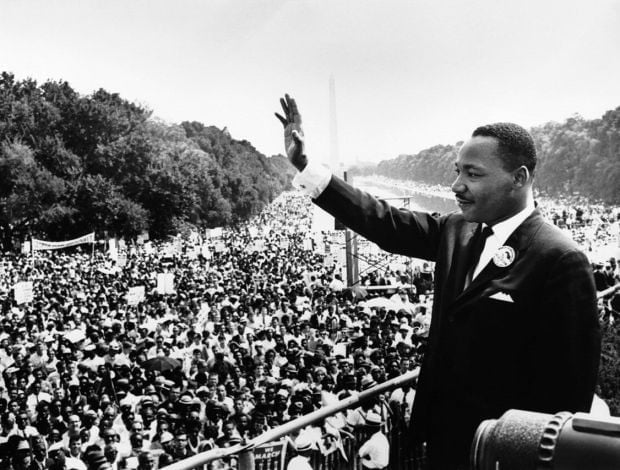America’s 38th celebration of Martin Luther King, Jr
In 1963 on the 28 of August, Dr. Martin Luther King delivered his legendary “I Have a Dream” speech at the March on Washington for Jobs and Freedom. In the speech, Dr. King drew directly on the promises made in the Declaration of Independence and the Constitution to call for civil rights and an end to racism.
“When the architects of our republic wrote the magnificent words of the Constitution and the Declaration of Independence, they were signing a promissory note to which every American was to fall heir. This note was a promise that all men, yes, black men as well as white men, would be guaranteed the unalienable rights to life, liberty, and the pursuit of happiness.”
King’s most important work applied America’s founding ideals to the cause of civil rights. The last best hope for true racial progress, King realized, was solidarity: For people to see and treat one another as equals, they had to feel the tugs of a bond far stronger than either race or politics, and for King, that bond was America.
After all, there are two words in the phrase “civil rights,” and King grasped that both are crucial. Civil rights are about the fair and equal participation of all citizens in the American community. For those rights to have any power, the bonds of that community must be close-knit and resilient.
“I criticize America because I love her,” King said in a speech about the Vietnam War, “and because I want to see her to stand as the moral example of the world.”
All Americans alike can learn from King’s example, “In the United States of America, every citizen should have the opportunity to build a better and brighter future. United as one American family, we will not rest, and we will never be satisfied until the promise of this great nation is accessible to each American in each new generation.”
The premise and promise of King’s dream is that we don’t need to replace or transform our nation’s shared ideals to make our country a better place.
We simply need to live up to them.
On Apr. 3, 1968, the eve of his assassination, King gave his “I’ve Been to the Mountaintop” address at the Bishop Charles Mason Temple in Memphis, Tenn. In standing with the Memphis sanitation workers on strike, Dr. King struck a familiar chord in tying the striking workers’ economic rights to their natural human rights and their civil rights, as promised in the founding documents.
“But somewhere, I read of the freedom of assembly. Somewhere I read of the freedom of speech. Somewhere I read of the freedom of press. Somewhere I read that the greatness of America is the right to protest for right. And so, just as I say, we aren’t going to let any dogs or water hoses turn us around; we aren’t going to let any injunction turn us around. We are going on. We need all of you.”
In that same speech, he went on to say,
“Because if I had sneezed, I wouldn’t have been around here in 1960, when students all over the South started sitting in at lunch counters. And I knew that as they were sitting in, they were really standing up for the best in the American dream and taking the whole nation back to those great wells of democracy, which were dug deep by the founding fathers in the Declaration of Independence and the Constitution.”
King left a legacy of hope and inspiration that continues on today; his love and admiration of the founding fathers, the Declaration of Independence, and the Constitution were unwavering and gave him hope of what could be and what was to come.
Monday, Jan. 16, will mark America’s 38th celebration of Martin Luther King, Jr.’s life and legacy. Honoring King with the sacred status of a federal holiday, of which there are only ten, none other named for a 20th-century figure, is a testament to the unifying power of his legacy.


